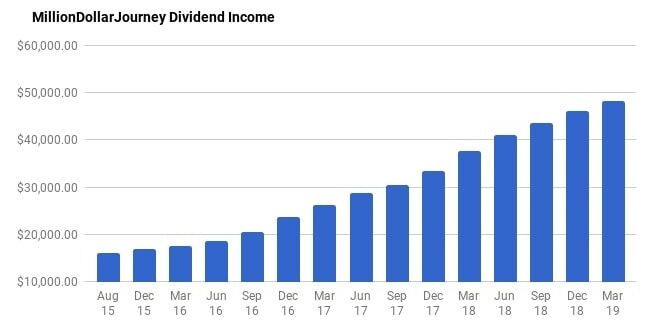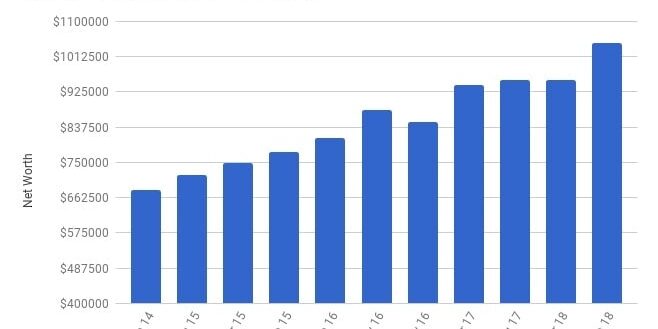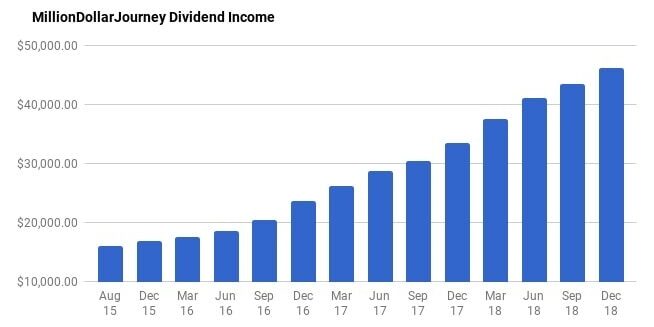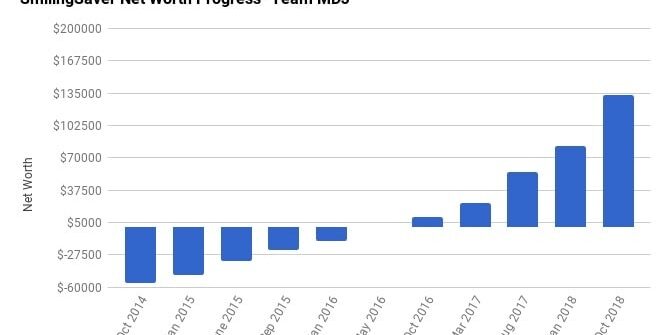Wealthsimple Trade vs. TD Direct Investing
Comparisons between no-fee online brokers like Wealthsimple Trade and higher-priced Big Bank brokers like TD Direct Investing really come down to a battle of price vs selection and service. Wealthsimple Trade gives you a basic DIY platform with no trading fees, while TD Direct Investing gives you the selection and service you expect from a Big Bank…with the price tag to match.
Our Wealthsimple Trade vs TD Direct Investing comparison will take the highlights from our full broker reviews and put them side by side so you can see exactly how they compare. We’ll break down the differences and give you our thoughts on the relative merits of each platform.
By the end of this article, you’ll have a better idea not only of which of these brokers is a better fit but also of what your personal priorities are when you’re hunting for the best discount broker for you.
Wealthsimple Trade vs. TD Direct Investing Quick Comparison
Here are the details of TD’s and Wealthsimple’s DIY investing platforms, so you can get a clear picture of how their offerings compare.
TD Direct Investing | Wealthsimple Trade | |
Investment Options | Stocks, ETFs, Mutual funds, Money markets, Bonds, GICs, Options, IPOs, T-Bills | Stocks and ETFs only |
Free ETFs | No (but free mutual funds, bonds, GICs, T-bills, money markets) | Free to buy and sell all ETFs |
User Experience | Recent upgrades to platforms (multiple platforms available) | Web platform can be buggy. The app is streamlined but lacks resources and some functionality. |
Customer Service | Decent customer service, major push to improve response time. | Almost nonexistent customer service. Next to no support. |
Trading Fees | $9.99/trade (standard) $7.00/trade Active Trader Pricing (150+ Trades/Quarter) Free mutual funds, fixed-income investments, and IPOs | None |
ECN Fees | None | None |
Account Options | Margin accounts, cash accounts, TSFA, RRSP, RESP, RIF, LIRA, LIF, RDSP | Personal, TFSA, RRSP |
Account Fees | $25/quarter (fee can be waived in several ways) | None |
Research Tools and Education Materials | Excellent app and resources with free real-time stock info. | Basic “How to invest” video resources on their site. No analytics or in-depth asset information. Stock info is 15 minutes old. |
Safety | CIPF insured, IIROC regulated | CIPF insured, IIROC regulated |
Mutual Fund Purchases | ||
Promo Offer | $50 sign-up bonus | |
Sign Up |
You can also check out our Wealthsimple Trade review and our TD Direct Investing review for even more specifics and our full opinion.
Wealthsimple vs. TD: Safety and Security
The Toronto Dominion Bank of Canada was founded in 1855 and is one of Canada’s Big Banks. TD launched a self-directed investment service in 1984 and became Canada’s first online trading service in 1992.
Wealthsimple was founded in 2014 and began as a robo advisor (Wealthsimple Invest is still our top robo advisor in Canada) before launching self-directed trading in 2019. The company has over $15 billion in assets under management and is used by over 1.5 million investors globally.
In other words, both TD and Wealthsimple are well-established, legit companies.
Wealthsimple Trade and TD Direct Investing are IIROC regulated and CIPF insured for up to $1 million. Wealthsimple’s accounts are held in trust at a CDIC member institution, while TD is a CDIC member institution. They both use high-level encryption and bank-standard security to protect your data. Basically, you can trust both Wealthsimple and TD with both your money and your information.
While investing always carries some risk, the only kind of risk you have to worry about with TD and Wealthsimple is based on your investment decisions – not on the platforms or companies.
Wealthsimple vs. TD: Fees
Wealthsimple Trade’s big claim to fame is that it’s commission-free. They don’t charge fees to buy or sell stocks or ETFs, and they don’t have account fees. They were the first company to offer a commission-free model (National Bank Discount Brokerage followed their example).
Obviously, No-fee investing sounds amazing, but keep a couple of things in mind:
- If they’re not getting money from you directly, they’re getting it some other way. That other way usually involves selling your investment information.
- You often get what you pay for. Just saying.
Meanwhile, TD Direct Investing, has some of the highest fees of any DIY brokerage. You pay $9.99 per trade unless you’re one of their Active Traders and make over 150 trades a month. That’s…a lot of trades, so you’re probably looking at paying the higher fee.
TD does offer commission-free trading on some investments including:
- Mutual funds
- Bonds
- Strip Coupons
- GICs
- T-Bills
- Other money market products
But the rest of your trades will incur the $9.99 fee.
TD also charges $25/quarter for account maintenance. It’s not a huge deal because it’s fairly easy to get out of (if your balance is over $15,000, or if you qualify for their TD Household Program, the fee is waived).
Really, when you compare fees for Wealthsimple Trade and TD Direct Investing, you’re looking at the highest and lowest ends of a spectrum. And, to be honest, neither is the best. Brokerages like Questrade have low fees and a phenomenal platform as well. You can read more in our Questrade vs Wealthsimple comparison.
Wealthsimple vs. TD: Account Options
Continuing the theme of “you get what you pay for,” Wealthsimple Trade has an extremely limited selection of accounts available. You can open a TFSA, an RRSP, and a personal non-registered investment account. That’s it. Nothing else.
TD, like most other DIY online brokers, offers a more complete range of accounts, including:
- Margin accounts
- Cash accounts
- TFSA
- RRSP
- RESP
- RIF
- LIRA
- LIF
- RDSP
As well as personal, joint, corporate, and trust versions of many accounts.
Wealthsimple vs. TD: Stocks and ETFs
Our theme continues as we look at Wealthsimple and TD’s investment options. Wealthsimple Trade offers stock and ETF purchases only. Meanwhile, TD offers the full range of investment options including:
- Stocks
- ETFs
- Mutual funds
- Money markets
- Bonds
- GICs
- Options
- IPOs
- T-Bills
Wealthsimple Invest, Wealthsimple’s robo advisor branch, gives you access to more than just stocks and ETFs, so this limited selection is clearly a choice Wealthsimple made in order to keep trades simple and fees low. Which means that (all together now) you get what you pay for.
Wealthsimple vs. TD: ETFs vs Mutual Funds
Wealthsimple Trade allows you to purchase ETFs commission-free, as we’ve said, but a Management Expense Ratio (MER) is still deducted from your account. This is standard practice, but it’s still worth mentioning. Your investments, even zero-commission ones, cost you something.
TD offers a commission-free alternative to ETFs, and that’s TD e-series mutual funds. These index funds track the performance of specific markets just like ETFs. While they’re commission-free like Wealthsimple Trade’s investments, the TD e-series funds have an MER over 0.3% across the board, and as high as 1.38% in some cases.
That makes them cheaper than many mutual funds but far pricier than most ETFs, including the ones you can buy through Wealthsimple Trade. We’re not big fans of mutual funds in general, so this isn’t really an exciting feature as far as we’re concerned (no-fee ETFs like many other DIY brokers offer, would be better).
Wealthsimple vs TD: Available Promotions
TD Currently does not offer any promotions for opening a new account. Wealthsimple, on the other hand, has a pretty generous promo offer that applies to all of their services (both robo advisor and brokerage).
You get a $50 cash bonus when opening a Wealthsimple Trade or Wealthsimple Crypto account and deposit and trade at least $150.
Wealthsimple vs. TD: Mobile App & Advanced Investing Tools
Wealthsimple Trade has a dedicated trading app, which is free to download from the app store of your choice. We find their trading platform to be clunky to work with, and the information it provides is not so much streamlined as inadequate.
Serious traders will be turned off by the fact that basic Wealthsimple Trade account holders have to make do with 15-minute-old stock data (Wealthsimple Premium members pay $3/month for real-time snap quotes).
TD Direct Investing is built into the TD app, which is ranked #4 in Finance in the Apple App Store. It’s been recently upgraded and features free real-time snap quotes, plus additional investment data. Investors generally seem to be happy with the changes and the functionality.
Wealthsimple vs. TD: Customer Support
Wealthsimple Trade is a discount DIY platform, and that goes for customer service as well! You can search their Trade Help Centre yourself and contact an email address if you really can’t find the info you need.
It’s bare-bones, to say the least (remember when we talked about getting what you pay for?).
By contrast, TD Direct Investing prides itself on excellent and fully featured customer service. They added 35% more licensed investment representatives in 2020-2021 to help improve customer wait times. They also provide investors with high-level analytics and real-time data to help them make the best possible decisions.
Wealthsimple or TD FAQ
Wealthsimple vs. TD: Our Verdict
So now that we’ve looked at all the details, which of these platforms wins the crown for the best DIY broker? Will it be no-commission trading with Wealthsimple Trade…or top-of-the-line selection and service (and top-end pricing!) with TD Direct Investing?Honestly? It’s neither of them.
Wealthsimple Trade is low on our list of online discount brokers. The lack of account and investment options, customer support, and real-time data far outweigh the savings on commissions.
TD Direct Investing has a fully developed DIY trading platform with excellent customer service and analytical tools to die for. But their trading fees are among the steepest out there. You’ll probably be happy with the service and resources- just know that you’re paying for them!
There are many excellent DIY online brokers out there with a range of options, fees, and services, but our top picks for self-directed investing are Qtrade or Questrade.
I've Completed My Million Dollar Journey. Let Me Guide You Through Yours!
Sign up below to get a copy of our free eBook: Can I Retire Yet?











A generally fair review but with a few mistakes. For example,TD does not offer commission free purchases of bonds and strips. In each case the commission is built into the price. One can judge the size of the commission by looking at the difference between the buy and sell price for bonds on the TD Direct Investing site.